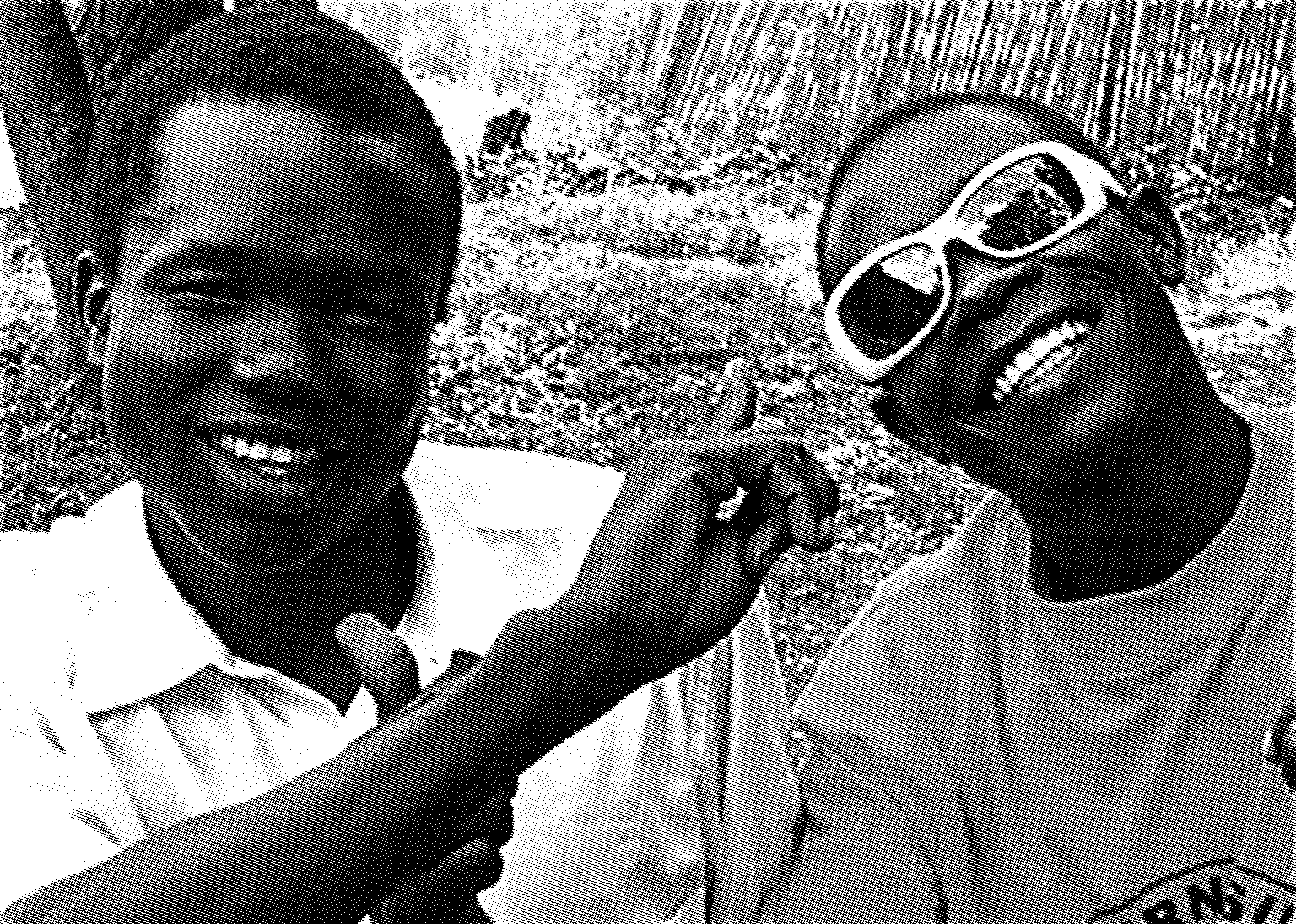
Mawa Augustine (alias Lost Boy) and Loro Lorenz (alias Kitu Afri Musica) during the production with Xchange Perspectives in Yei. Photo: Xchange Perspectives e.V.
30.12.2011TrainingProductionEquipmentDocumentationMedia for Peace
A beat for peace: Salam Bada
Peace, as a state of being, permeates all levels of life: social, political, ethical, and spiritual. Recognising the interconnectedness of these realms is crucial because actions in one sphere influence and shape the others. But where does peace begin? It begins in the heart, as Lost Boy, a musician supported by Xchange Perspectives, sings.
- Watch the music video 'Salam Bada'
How do we achieve peace, and what does it mean? Interestingly, every human being yearns for peace. We all desire to live in stable and safe conditions and seek inner peace, a state of complete soul-rest. This common yearning raises the question: why do we long for peace?
A Journey of Discovery
Peace is a mental construct that encompasses the conditions necessary for fostering development and growth. Our constant struggle to meet these conditions—safety, continuity, and love—demonstrates our deep-seated desire for peace. These fulfilled conditions create a fertile ground for mature growth and spark a spirit of creativity that guides this process.
Ultimately, our quest for peace is about providing an inner and outer context for discovering life's purpose. Recognising this process takes humanity beyond seeing peace merely as a goal; it becomes both the path and the destination. It envisions a reality of continuous, thrilling quests for higher and nobler discoveries across all aspects of life, elevating human civilisation beyond our current conceptual frameworks.
Creating a Culture of Peace
Why haven't we achieved peace yet? We need to be more patient. Trees are cut quickly; forests grow over generations. Making peace is a long and complicated process, often misunderstood as a mere agreement between parties, signed by elites and implemented by the people. Since the Second World War, this notion has evolved. Modern conflicts often arise within states, driven by economic, ethnic, political, or cultural factors, making them harder to analyse. Denying the interconnected nature of these issues is common, but external players often influence and intensify these conflicts to suit their own interests.
We all know how to make war, with sophisticated weapons and armies aiming to defeat the other side. Paradoxically, "war is a cultural achievement of humanity," showcasing our ability to organise, strategise, and mobilise resources on a massive scale, albeit for destructive purposes. Now, we must learn to create and sustain a culture of peace. Though challenging, it is not impossible; otherwise, humanity would have self-destructed long ago. Many societies possess knowledge of non-violent conflict resolution, reconciliation, and conflict de-escalation. Every civilisation has developed forms of diplomacy, dialogue, and rituals to mitigate opposing parties' tensions. Furthermore, diverse cultures have cultivated an intimate understanding of peace as integral to life, seen in meditation techniques and societies built on cooperation and social interdependence.
Media and Science: Allies or Obstacles to Peace?
While everyone should understand this, those seeking deeper knowledge about peace encounter a significant obstacle: a lack of information. Two main institutions that could greatly expand our understanding—media and science—know surprisingly little about peace. The media focuses on conflict and violence, as these stories sell well. Bad news is good news, and war provides the most dramatic narratives. This focus is driven by profit-oriented business people rather than courageous journalists.
In science, the situation is more complex. Despite numerous institutions and publications with 'peace' or 'security' in their names, much of the research centres on war. Most peace researchers are actually war researchers, focusing on the number of casualties and the costs involved. Political scientist Volker Matthies from Hamburg states, "peace is considered obvious and doesn’t need to be elaborated or reported." At Xchange Perspectives, we believe peace is not obvious. Therefore, we support talented young individuals like Lost Boy to share their perspectives on peace and encourage us all to grow towards a culture of peace.
- Text by: Dominik Lehnert, 2010 (Adapted from 'Media for Peace - a holistic framework for action'. For more information, please contact us.)


